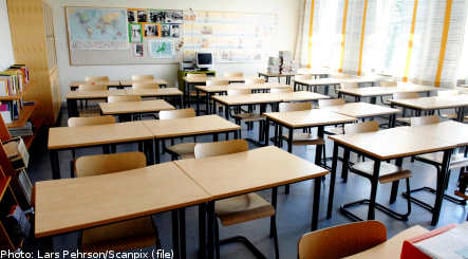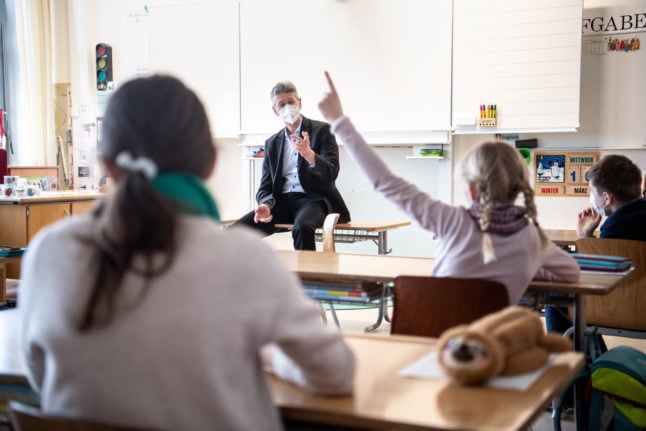The government agency in its report demands that the schools in the Malmö suburb offer more training to their staff and an improvement to school-home liaison.
Overall less than a third of students in Rosengård achieved passes in class nine (aged 15-16-years-old), with results varying widely, the report shows.
“Rosengård schools stand out; it can’t get much worse in some respects. It becomes particularly clear in the knowledge of students who leave elementary school,” Cecilia Rösténius at the Schools Inspectorate said.
At Värner Rydén school 41 percent of students in class nine achieved passing grade sin all subjects last year while Rosengård school only 13 percent of students reached the target.
But she added that inspections of similar deprived socio-economic areas in Gothenburg and Stockholm have not been completed recently.
Following an inspection of Rosengård schools in 1995, the inspectorate also issued stern criticism, but since then results have become progressively worse.
“You can change this, that we are convinced of,” Rösténius said.
The Schools Inspectorate described the students’ school situation in Rosengård as “very serious” and called the results “alarming low.”
The fact that not even a third of students completed class nine – the final year of compulsory schooling – in all subjects means that more than seven out of ten faces an uncertain future, the inspectorate stressed in a statement.
One of the explanations given for the poor results is that a high proportion of students are new arrivals in Sweden, although there is a high degree of under-achievement even among those born in the country.
The list of criticisms of Rosengård school – the school with the worst levels of achievement – is long.
Primarily the inspectorate drew attention to the situation where teachers do not follow the national curriculum guidelines sufficiently. Furthermore students progress is not adequately evaluated and teaching in native languages is not offered to all those who need it.
The inspectorate has given Rosengård district council a month to present a plan for how the deficiencies in its schools will be addressed.
If the results do not improve then an increasing number of students will find it difficult to be admitted to high schools (gymnasium), the inspectorate concluded.
Currently students are required to hold passing grades in the core subjects of Swedish, English and maths, but from the autumn they will be required to pass more subjects.



 Please whitelist us to continue reading.
Please whitelist us to continue reading.
Member comments